“The only current evidence-based factual indication for
the addition of testosterone to standard HRT, is for
persistent low libido in postmenopausal women, after…”.1
Umbrella
What may the Testosterone Therapy for Women Umbrella include?
Depending on the Source (DotS) this Umbrella may include:
- Androgen
- Male Androgen Hormone
- Male Hormone
- Male Sex Hormone
- Testosterone
- Testosterone Therapy/Treatment
Testosterone
What is testosterone?
DotS the definition of testosterone may vary. The Australian Menopause Society’s (AMS) definition is:
“Testosterone is the male sex hormone found in smaller amounts in women. In women, increased levels of testosterone can lead to acne and hirsutism. Low levels of testosterone in women may contribute to loss of libido”.2
Female Hormone
Is testosterone a female hormone?
On page one in Testosterone Replacement In Menopause: Is Testosterone A Female Hormone? the British Menopause Society (BMS) elaborate on:
“Yes – premenopausal women produce both testosterone and estrogen physiologically. Androgens, including testosterone, are essential for development and maintenance of female sexual anatomy and physiology, and modulation of sexual behaviour”.3
Libido
What is libido?
DotS the definition of libido may vary. In What Can Affect Your Sex Life? Sexual Desire (Libido) the (Australian) Jean Hailes for Women’s Health (JH) definition is:
“Sexual desire or sex drive is your level of interest in sexual activity. It’s normal for your sexual desire to go up and down at different times and for different reasons”.4
Testosterone Therapy
Is testosterone therapy recommended for low libido?
The BMS Statement on Testosterone published 26 July 2024, the BMS explain:
 “The only current evidence-based factual indication for the addition of testosterone to standard HRT, is for persistent low libido in postmenopausal women, after all other contributory factors have been addressed. There is no evidence to support claims that testosterone will help with other symptoms associated with menopause or prevent bone loss or dementia.
“The only current evidence-based factual indication for the addition of testosterone to standard HRT, is for persistent low libido in postmenopausal women, after all other contributory factors have been addressed. There is no evidence to support claims that testosterone will help with other symptoms associated with menopause or prevent bone loss or dementia.
Ongoing research may provide evidence for other indications for use of testosterone by women, and we all agree that more research is needed”.5
HSDD
In women, what is Hypoactive Sexual Desire Disorder (HSDD)?
DotS the definition of HSDD may vary. In What Is Hypoactive Sexual Desire Disorder (HSDD) In Women? What Causes It? the International Society for Sexual Medicine’s definition is:
“Hypoactive sexual desire disorder (HSDD) is a troublesome condition in which women lose interest in sex. The Society for Women’s Health Research estimates that one in ten women have HSDD, making it one of the most common female sexual health complaints”.6
Postmenopause + HSDD
For postmenopausal women experiencing HSDD, may testosterone therapy be a suitable treatment?
On page one in Testosterone and the Menopause: Testosterone Replacement In Women, published July 2022, the European Menopause and Andropause Society note:
“HSDD after the menopause is the only evidence-based indication for testosterone in women”.7
On page one in Testosterone for Women: Why Use Testosterone? the WHC elaborate on:
“The current recommended reason is for persistent low sex drive (Hypoactive sexual desire disorder, HSDD) in women after all other possible factors, including taking adequate estrogen, have been addressed. Even with this indication, it does not help everyone”.8
In The 2023 Practitioner’s Toolkit for Managing Menopause: Management – MHT Formulations and Options: Testosterone published online 01 December 2023, the authors explain:
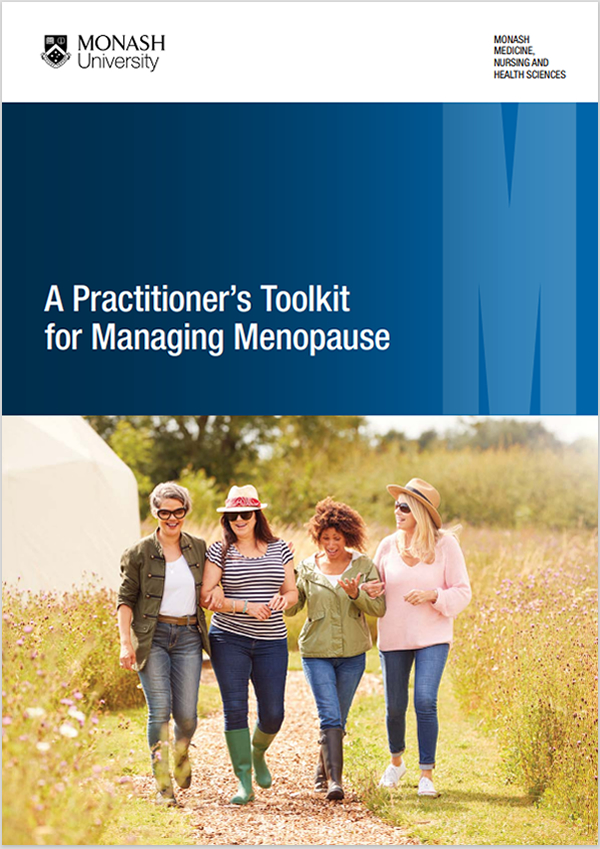 “Testosterone is not a standard component of MHT. The only evidence-based indication for testosterone therapy is for the treatment of postmenopausal women who experience loss of sexual desire that causes them to experience concern/distress. When prescribed for this indication, treatment should be transdermal and ideally with a preparation formulated for women. Alternatively, a modified dose of a regulatory-approved male testosterone therapy could be used. With both options, women should be monitored for evidence of clinical or biochemical androgen excess. Compounded testosterone formulations are not recommended due to lack of evidence of safety or efficacy. Detailed guidance regarding testosterone use in women can be found in the Global Consensus Position Statement for Testosterone use in Women”.9
“Testosterone is not a standard component of MHT. The only evidence-based indication for testosterone therapy is for the treatment of postmenopausal women who experience loss of sexual desire that causes them to experience concern/distress. When prescribed for this indication, treatment should be transdermal and ideally with a preparation formulated for women. Alternatively, a modified dose of a regulatory-approved male testosterone therapy could be used. With both options, women should be monitored for evidence of clinical or biochemical androgen excess. Compounded testosterone formulations are not recommended due to lack of evidence of safety or efficacy. Detailed guidance regarding testosterone use in women can be found in the Global Consensus Position Statement for Testosterone use in Women”.9Australia, 19 June 2023
Presently, is Australia the only country in the world with an approved testosterone formulation specifically for women?
In Advancing Menopause Care In Australia: Barriers and Opportunities: The Role of Testosterone, published online 19 June 2023, the authors elaborate on:
“Presently, Australia is the only country in the world with an approved testosterone formulation specifically for women. Its prescribing indication is in line with the evidence of efficacy of transdermal testosterone for the treatment of post‐menopausal women with low sexual desire associated with personal distress (hypoactive sexual desire disorder). Important caveats on the evidence are that…”.10
Low Mood and Depression
Is there a role for testosterone therapy for low mood or depression?
On page four in the Joint Position Statement By the British Menopause Society, Royal College of Obstetricians and Gynaecologists and Society for Endocrinology on Best Practice Recommendations for the Care of Women Experiencing the Menopause, first published online 10 June 2022, one of the recommendations is:
In Advancing Menopause Care In Australia: Barriers and Opportunities: The Role of Testosterone, published online 19 June 2023, the authors explain:
05 July 2024
So, does testosterone improve fatigue, wellbeing or cognition?
In Prescribing of Testosterone for Middle-Aged Women ‘Out of Control’, published 05 July 2024, includes:
Prof Susan Davis, head of the Monash University Women’s Health Research Programme in Melbourne Australia, and a past president of the Australasian Menopause Society and the International Menopause Society, disputes this suggestion.
She said: “The data clearly supports a trial of therapy in postmenopausal women with low sexual function that bothers them. But we have looked at the evidence inside and out, reviewed all the published literature, and published all of our own data. The evidence that testosterone will improve fatigue, wellbeing, cognition, or anything else you want to list, is just not there”.13
Health Care Provider
What if I am considering testosterone therapy?
If you are considering testosterone therapy, it may be in your best interest to choose to talk to your health care provider about this.
Health Topics A-Z
Where may I find Health Topics A-Z related to Testosterone Therapy for Women?
In Health Topics A-Z you may find:
Links
Where may I find Links related to Testosterone Therapy for Women?
Your Country may have Links similar to:
Links
This Links List to third party websites is neither comprehensive nor exhaustive. Inclusion on this Links List does not imply endorsement or recommendation. Non-inclusion on this Links List does not imply non-endorsement or non-recommendation. Third party websites are not under the control of Meno Martha International Menopause Directory. Third party websites may contain explicit medical images and/or sexual references. Please read Meno Martha International Menopause Directory’s Links Policy before proceeding to a Link. Please contact Webmaster if you experience a problem with a Link.New or Updated
- FDA Approves Expanded Use of Flibanserin for Hypoactive Sexual Desire Disorder In Women [15 December 2025]
- Is Testosterone Just for Men? The Science of Women’s Hormones & Health | Susan Davis | EP #379 [26 August 2025]
- Testosterone Levels Decline With Age, Not Menopause, Despite What You’ve Heard [23 October 2025]
- Testosterone and Why the UK Is Falling Behind [26 January 2026]
- Testosterone for Women: Benefits, Science & Live Q&A [07 September 2025]
- What Women’s Health Providers Need To Know About Testosterone Therapy and Menopause [19 February 2026]
- Advancing Menopause Care In Australia: Barriers and Opportunities – The Role of Testosterone Treatment
- BMS Statement on Testosterone [26 July 2024]
- BMS TV: Testosterone Explained
- Balance Between Excitement, Inhibition Key To Treat Hypoactive Sexual Desire Disorder
- Can You Have Systemic Testosterone on Its Own Without Oestrogen Therapy?
- Consumer Video and Podcast Series: 2024 Consumer Videos and Podcasts – Preparing for Your Menopause Healthcare Visit
- Deciding About Hormone Therapy Use
- Don’t Believe the Hype. Menopausal Women Don’t All Need To Check – or Increase – Their Testosterone Levels
- EMAS On-Demand Webinars: Testosterone Therapy In Women [2024]
- Effects of Testosterone Hormone on the Sexual Aspect of Postmenopausal Women: A Systematic Review
- Experts Answer Your Menopause Questions In New Video
- FDA Approves Expanded Use of Flibanserin for Hypoactive Sexual Desire Disorder In Women
- Find A Menopause Practitioner [United States and Other]
- Find A Practitioner [Australasian Menopause Society i.e. Australia and New Zealand]
- Find Your Nearest BMS Menopause Specialist [British Menopause Society]
- Genitourinary Syndrome of Menopause
- Genitourinary Syndrome of Menopause
- HRT Questions Answered
- How to Manage Menopausal Symptoms
- How To Talk To Your Doctor About Menopause
- How To Talk To Your Doctor About Painful Sex
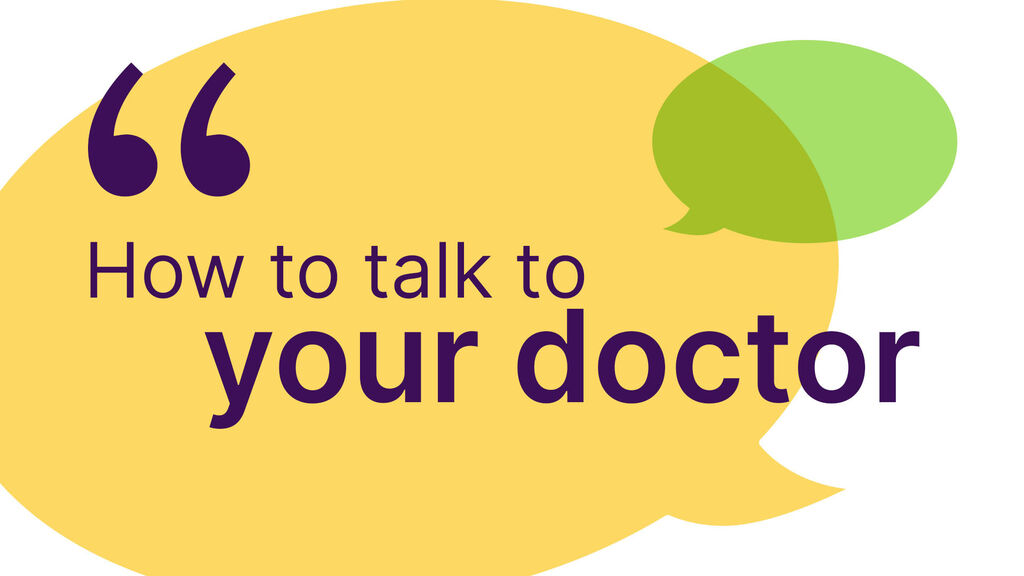
- International Society for Sexual Medicine: Sexual Health Topics
- International Society for the Study of Women’s Sexual Health Clinical Practice Guideline for the Use of Systemic Testosterone for Hypoactive Sexual Desire Disorder In Women
- International Society for the Study of Women’s Sexual Health: Find A Provider
- Is Testosterone Just for Men? The Science of Women’s Hormones & Health | Susan Davis | EP #379 [26 August 2025]
- Joint Position Statement By the British Menopause Society, Royal College of Obstetricians and Gynaecologists and Society for Endocrinology on Best Practice Recommendations for the Care of Women Experiencing the Menopause
- Later Years (Around 50 Years and Over): Menopause and Post Menopause Health – Sexual Wellbeing, Intimacy and Menopause [+ Video: Menopause Is the End of Your Sex Life] [Other Languages and Formats]
- Later Years (Around 50 Years and Over): Menopause and Post Menopause Health – Supporting Someone Through the Menopause [+ Video: Men Don’t Need To Know About Menopause] [Other Languages and Formats]
- Let’s Talk About Perimenopause
- Libido and Testosterone Therapy – Podcast
- Looking After Yourself Around the Time of Menopause
- Low Sex Drive In Women
- Low Sex Drive In Women: Diagnosis & Treatment
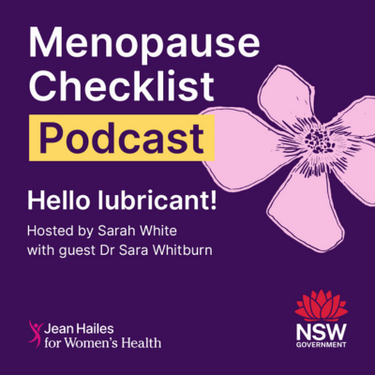
- Low Testosterone In Women
- Low Testosterone Levels In Women Associated With Double the Risk of Cardiac Events
- Menopause
- Menopause
- Menopause Checklist: Episode 6: Hello Lubricant!
- Menopause Map: Downloadable Resources – My Personal Path Print Tools: Questions for Your Health Care Provider

- Menopause Map: Downloadable Resources – My Personal Path Print Tools: Symptom Tracker
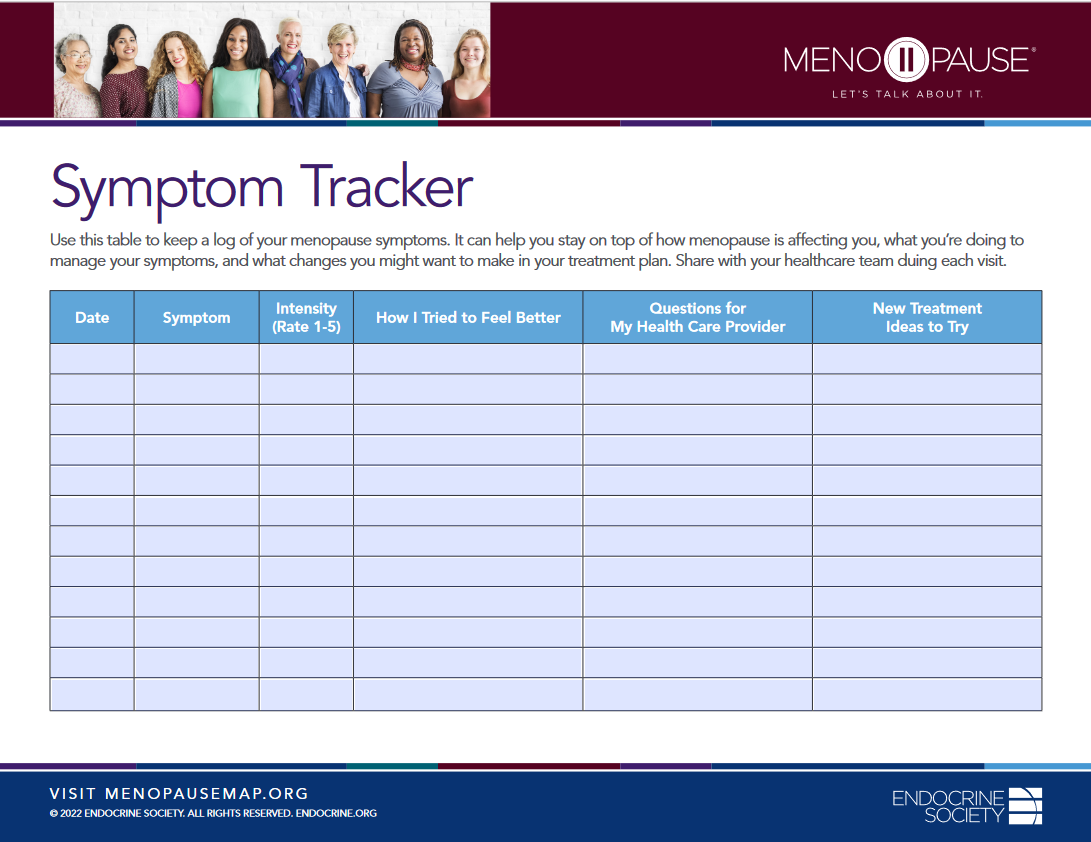
- Menopause Relief In the Spotlight Thanks To Monash University-Led Studies [Australia]
- Menopause Ruining Your Sex Life?
- Menopause Symptoms: Mayo Clinic Expert Outlines Hormone and Nonhormonal Therapies
- Menopause Treatments: What Works, What Doesn’t
- Menopause and Sexuality
- Menopause: Identification and Management [NICE Guideline]
- Menopause: Identification and Management [NICE Guideline]

- Menopause: Identification and Management: NICE Guideline [NG23] [07 November 2024]
- Navigating Menopause Care Resource Guide
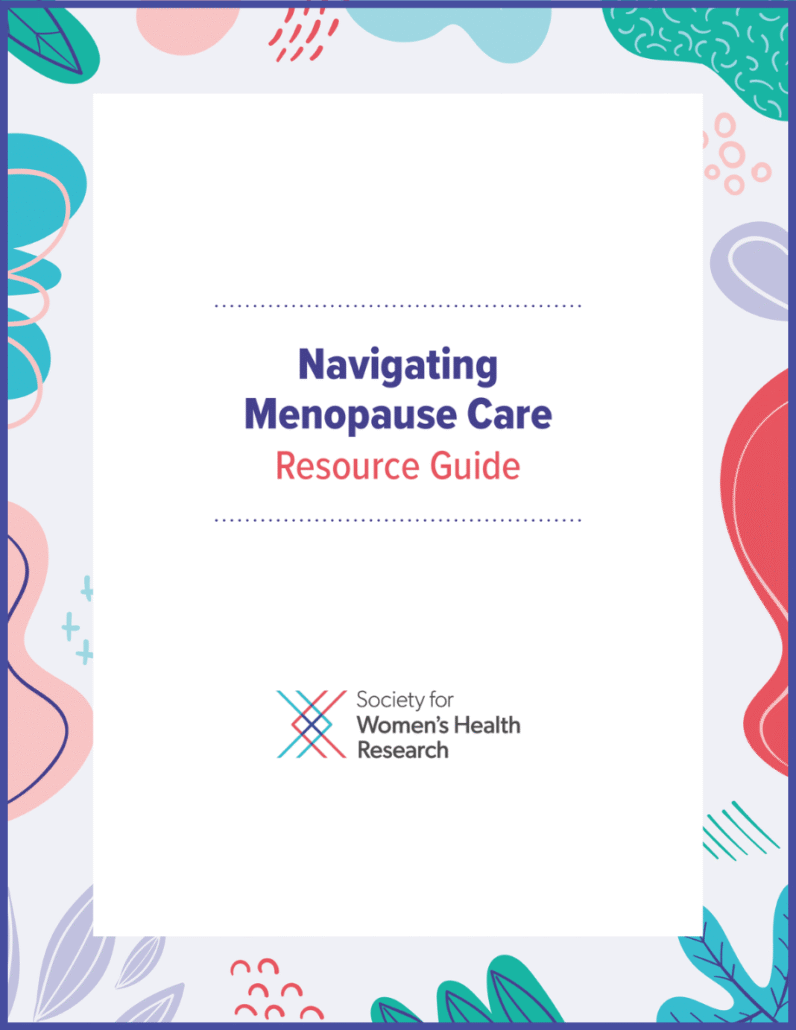
- Navigating Menopause Together: How Partners Can Help
- Non-Hormonal Treatments for Menopausal Symptoms
- Online Events [International Menopause Society]: Past Webinars – 2025: Lifestyle Medicine
- Perimenopause
- Perimenopause and Menopause Checklist: Translated Checklists
- Perimenopause and Menopause Symptom Checklist

- Postmenopause
- Prescribing Testosterone and DHEA: The Role of Androgens In Women
- Prescribing of Testosterone for Middle-Aged Women ‘Out of Control’
- Professional Video and Podcast Series: 2025 Professional Videos and Podcasts – Hypoactive Sexual Desire Disorder HSDD—Open the Door To Discussion
- Sex and Sexual Health
- Sexual Health
- Sexual Health: In-Depth – Testosterone Therapy – Potential Benefits and Risks As You Age
- Supplements: What Works, What Doesn’t and the Truth About Menowashing [08 June 2025]
- Symptoms of Low Testosterone In Women (and Reasons Why It Might Be Low)
- Talking Testosterone & Menopause With Prof. Susan Davis [Video]
- Testosterone | Dr Louise Newson
- Testosterone Explained – A British Menopause Society Video
- Testosterone Levels Decline With Age, Not Menopause, Despite What You’ve Heard [23 October 2025]
- Testosterone Q&A | Dr Louise Newson
- Testosterone Replacement In Menopause
- Testosterone Sex & Libido With Sexual Health & BMS Accredited GP, Dr Angela Wright [Video]
- Testosterone Therapy In Females Is Not Associated With Increased Cardiovascular or Breast Cancer Risk: A Claims Database Analysis
- Testosterone Therapy In Women: Does It Boost Sex Drive?
- Testosterone Therapy for Hypoactive Sexual Desire Disorder (HSDD) [2021]
- Testosterone Use for Hypoactive Sexual Desire Disorder In Postmenopausal Women
- Testosterone and Why the UK Is Falling Behind
- Testosterone and the Hormone Triangle, With Dr Mohit Khera | The Dr Louise Newson Podcast
- Testosterone and the Menopause
- Testosterone for Menopause: Why Women Face Difficulties Accessing Treatment
- Testosterone for Women
- Testosterone for Women: Benefits, Science & Live Q&A
- Testosterone for Women | Confidence In Menopause
- Testosterone: Beyond Libido | The Dr Louise Newson Podcast
- The 2023 Practitioner’s Toolkit for Managing Menopause
- The Menopause Society Statement on Misinformation Surrounding Hormone Therapy
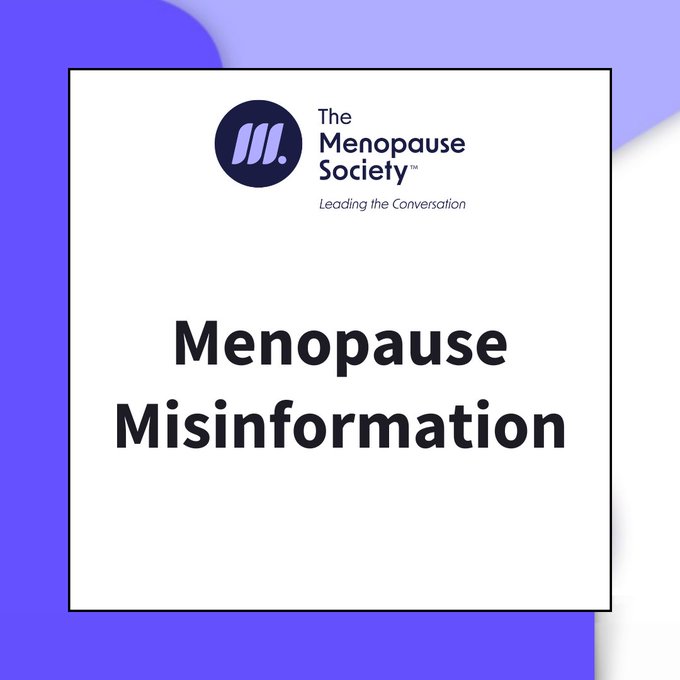
- Top Menopause Questions Answered: Hormones, Bones, Sex & Sleep
- Updated 2024 NICE Menopause Guidance Summary
- Vaginal Dryness After Menopause: How To Treat It?
- Videos & Podcasts: Videos – Menopause and Hormone Therapy: Current Perspectives and Controversies
- What Can Affect Your Sex Life?
- What Is Hypoactive Sexual Desire Disorder (HSDD) In Women? What Causes It?
- Who Should Take Testosterone In Menopause
- What Women’s Health Providers Need To Know About Testosterone Therapy and Menopause
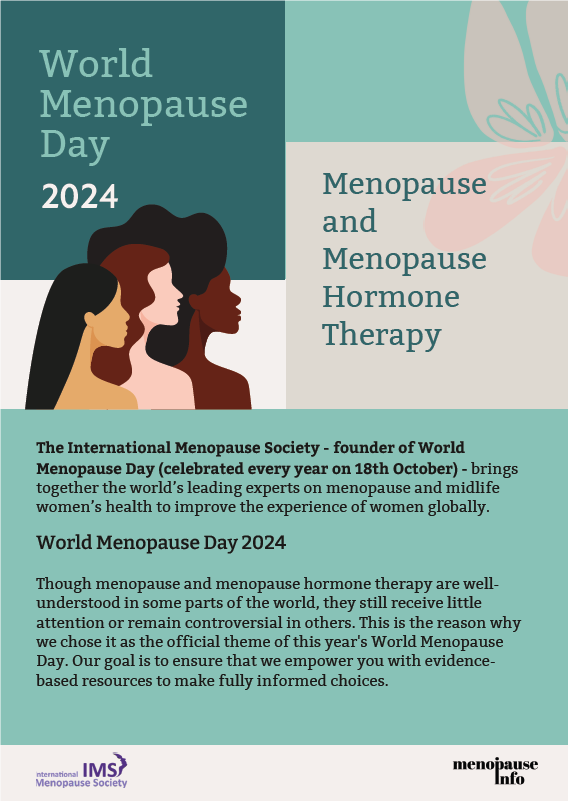 World Menopause Day 2024: Leaflet for Women – Menopause and Menopause Hormone Therapy [Multiply Languages]
World Menopause Day 2024: Leaflet for Women – Menopause and Menopause Hormone Therapy [Multiply Languages]
Sources
Where may I find the Sources quoted?
You may find the Sources quoted at:
Sources
- BMS Statement on Testosterone. 26 July 2024. British Menopause Society https://thebms.org.uk/2024/07/bms-statement-on-testosterone-2/ Accessed: 28 January 2026
- Glossary of Terms: Testosterone. 15 February 2022. Australasian Menopause Society https://www.menopause.org.au/hp/information-sheets/381-glossary-of-terms Accessed: 28 January 2026
- BMS Statement on Testosterone. 26 July 2024. British Menopause Society https://thebms.org.uk/2024/07/bms-statement-on-testosterone-2/ Accessed: 28 January 2026
- What Can Affect Your Sex Life? Sexual Desire (Libido). Last Updated: 18 December 2024 | Last Reviewed: 12 December 2023. Jean Hailes for Women’s Health https://www.jeanhailes.org.au/health-a-z/sex-sexual-health/what-can-affect-your-sex-life#sexual-desire-libido Accessed: 28 January 2026
- Testosterone for Women: Why Use Testosterone? Publication Date: February 2022:1. British Women’s Health Concern https://www.womens-health-concern.org/help-and-advice/factsheets/testosterone-for-women/ Accessed: 28 January 2026
- What Is Hypoactive Sexual Desire Disorder (HSDD) In Women? What Causes It? International Society for Sexual Medicine https://www.issm.info/sexual-health-qa/what-is-hypoactive-sexual-desire-disorder-hsdd-in-women-what-causes-it? Accessed: 28 January 2026
- Testosterone and the Menopause: Testosterone Replacement In Women. 2022:1. European Menopause and Andropause Society https://emas-online.org/wp-content/uploads/2022/07/Testosterone-and-the-menopause.pdf Accessed: 28 January 2026
- Testosterone for Women: Why Use Testosterone? Publication Date: February 2022:1. British Women’s Health Concern https://www.womens-health-concern.org/help-and-advice/factsheets/testosterone-for-women/ Accessed: 28 January 2026
- Davis, S. R., Taylor, S., Hemachandra, C., Magraith, K., Ebeling, P. R., Jane, F., and Islam, R. M. The 2023 Practitioner’s Toolkit for Managing Menopause: Definitions. Published Online: 01 December 2023 https://www.tandfonline.com/doi/full/10.1080/13697137.2023.2258783 Accessed: 28 January 2026
- Davis S. R., and Magraith, K. Advancing Menopause Care In Australia: Barriers and Opportunities: The Role of Testosterone. Published Online: 19 June 2023. https://www.mja.com.au/journal/2023/218/11/advancing-menopause-care-australia-barriers-and-opportunities Accessed: 28 January 2026
- Hamoda, H., Mukherjee, A., Morris, E., Baldeweg, S. E., Jayasena, C. N., Briggs, P., Moger, S. Joint Position Statement By the British Menopause Society, Royal College of Obstetricians and Gynaecologists and Society for Endocrinology on Best Practice Recommendations for the Care of Women Experiencing the Menopause. First Published Online 10 June 2022:4. https://journals.sagepub.com/doi/full/10.1177/20533691221104879 Accessed: 28 January 2026
- Davis S. R., and Magraith, K. Advancing Menopause Care In Australia: Barriers and Opportunities: The Role of Testosterone. Published Online: 19 June 2023. https://www.mja.com.au/journal/2023/218/11/advancing-menopause-care-australia-barriers-and-opportunities Accessed: 28 January 2026
- Geddes, L. Prescribing of Testosterone for Middle-Aged Women ‘Out of Control. 05 July 2024. https://www.theguardian.com/society/article/2024/jul/05/prescribing-of-testosterone-for-middle-aged-women-out-of-control Accessed: 28 January 2026







